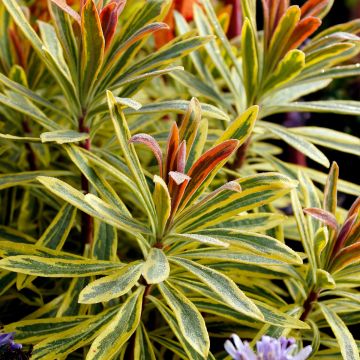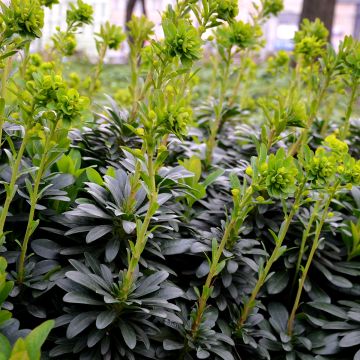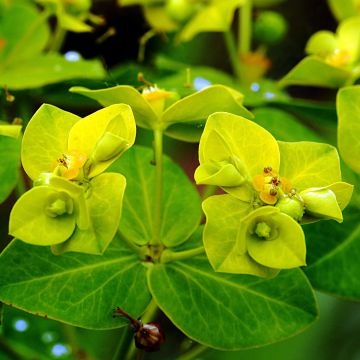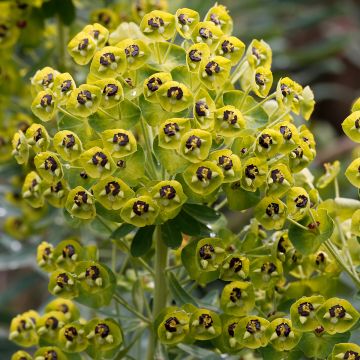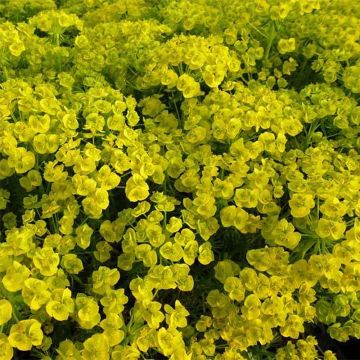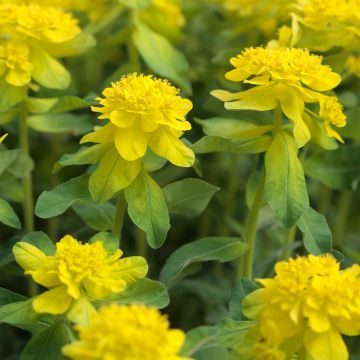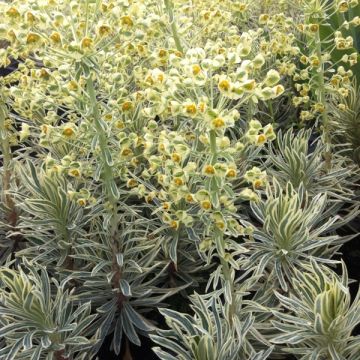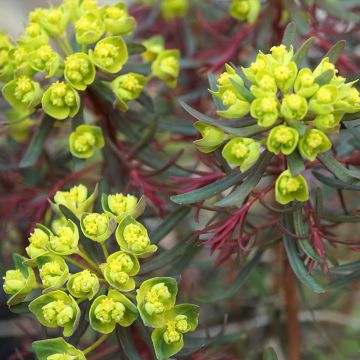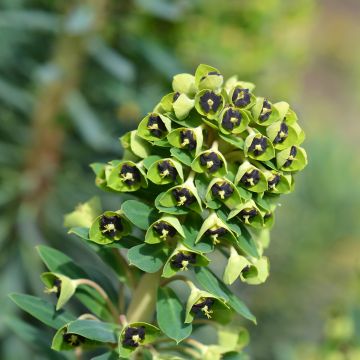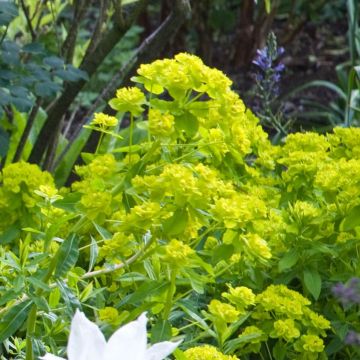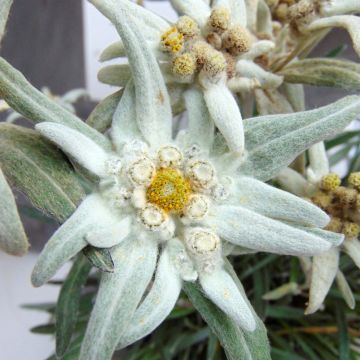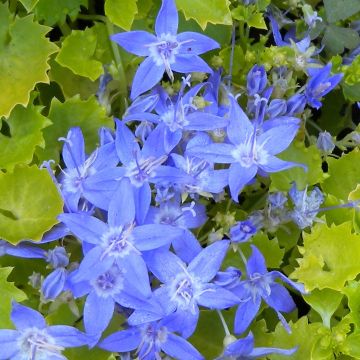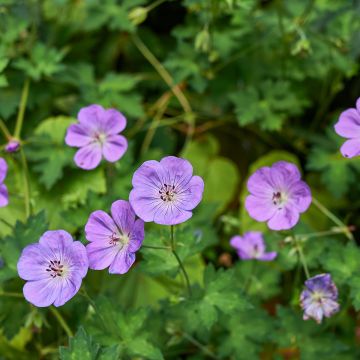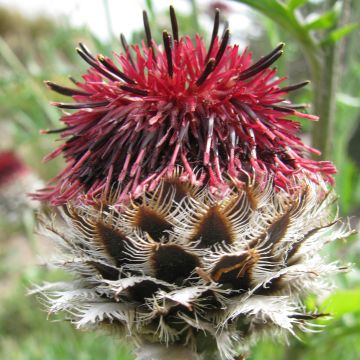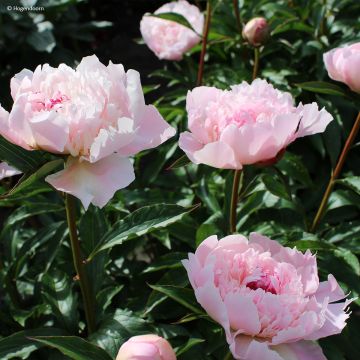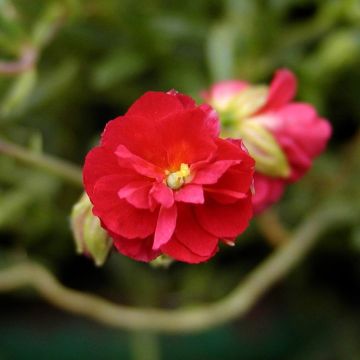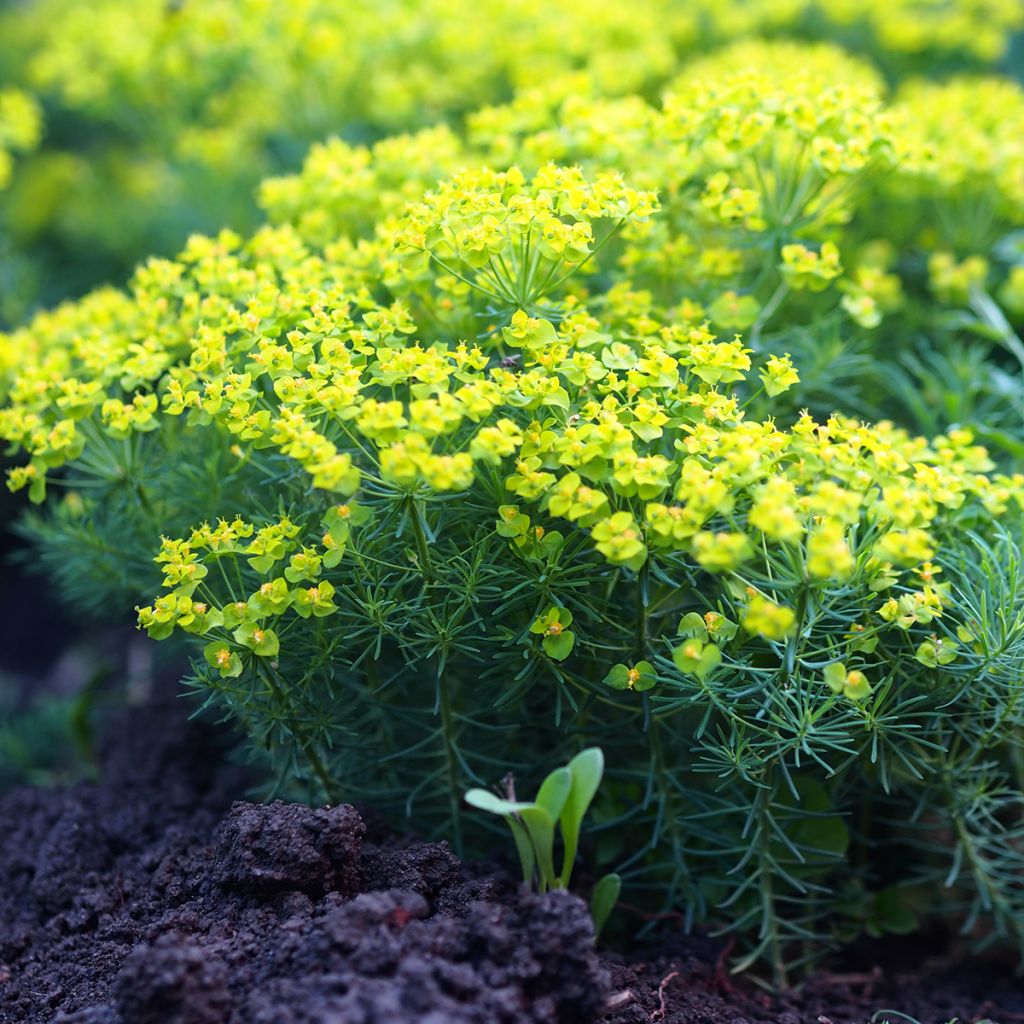

Euphorbia cyparissias Clarice Howard - Spurge
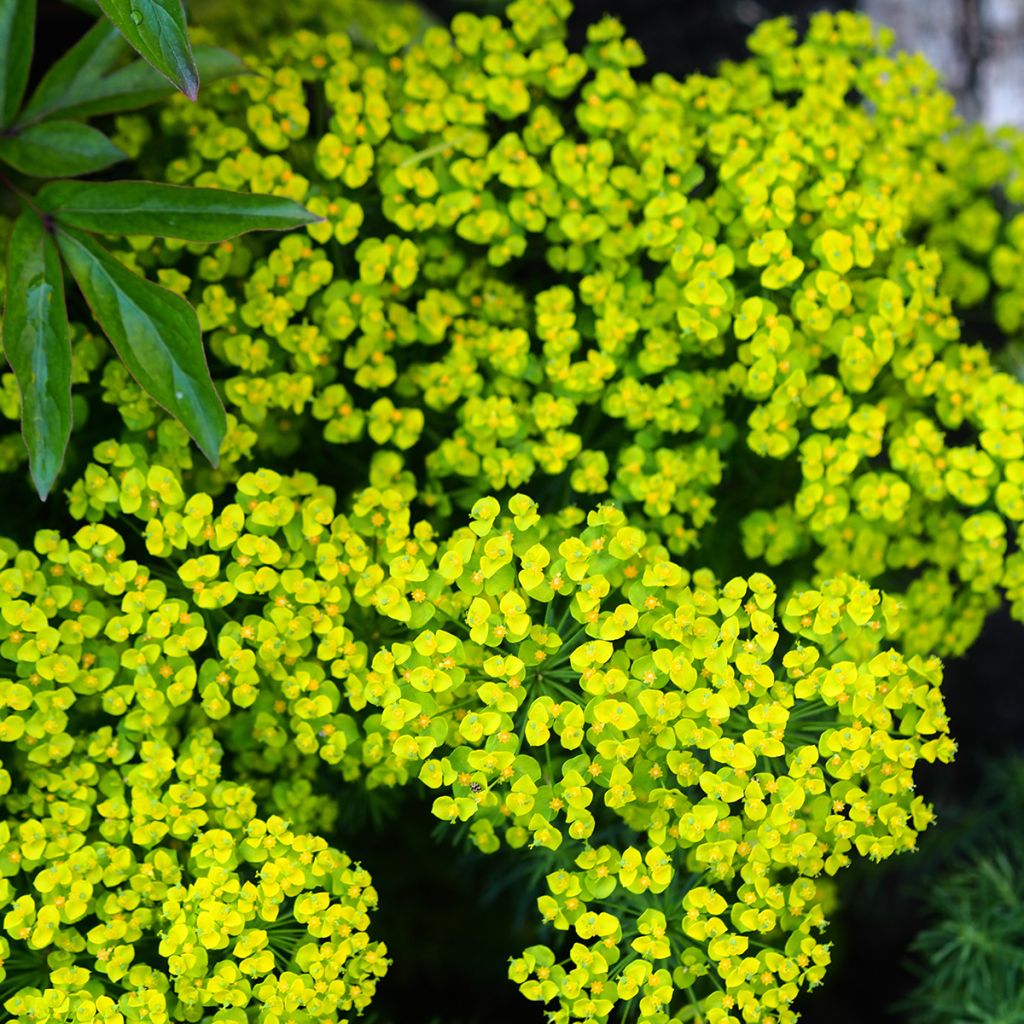

Euphorbia cyparissias Clarice Howard - Spurge
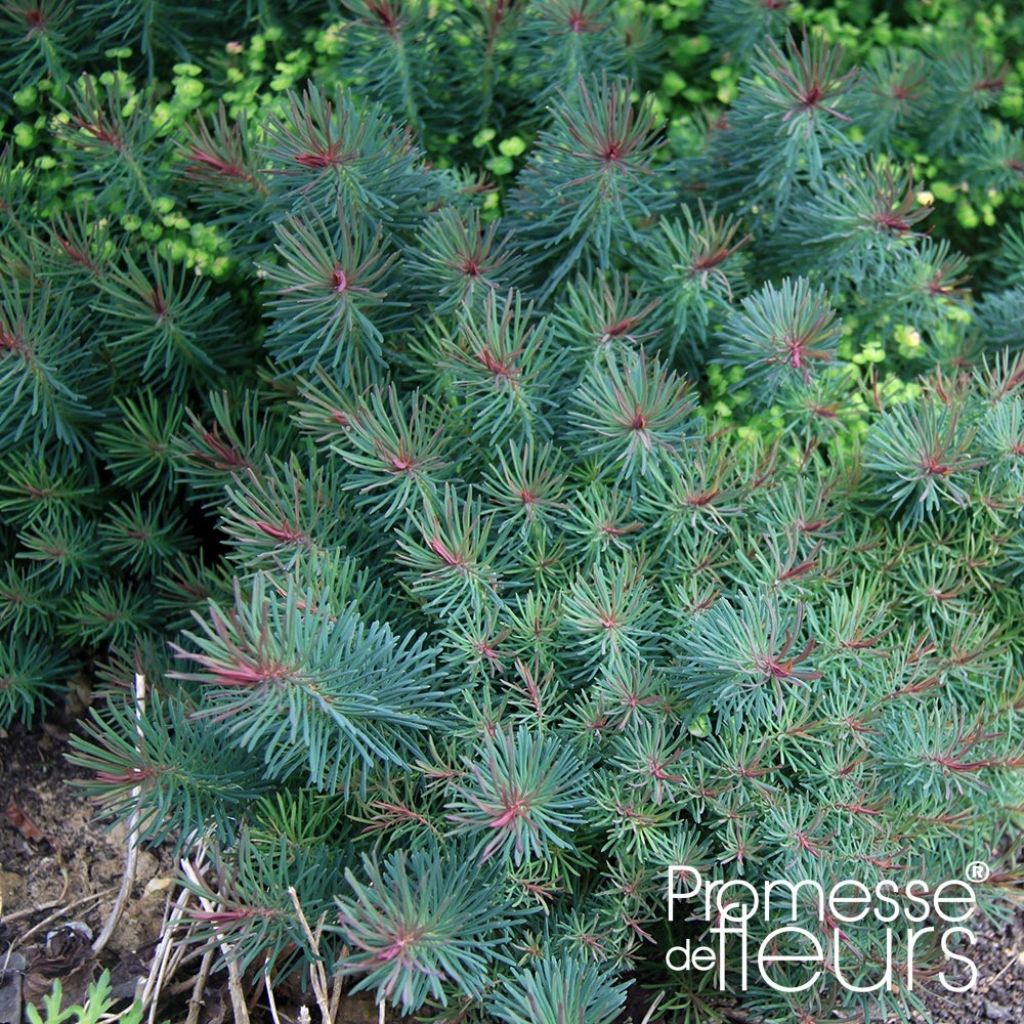

Euphorbia cyparissias Clarice Howard - Spurge
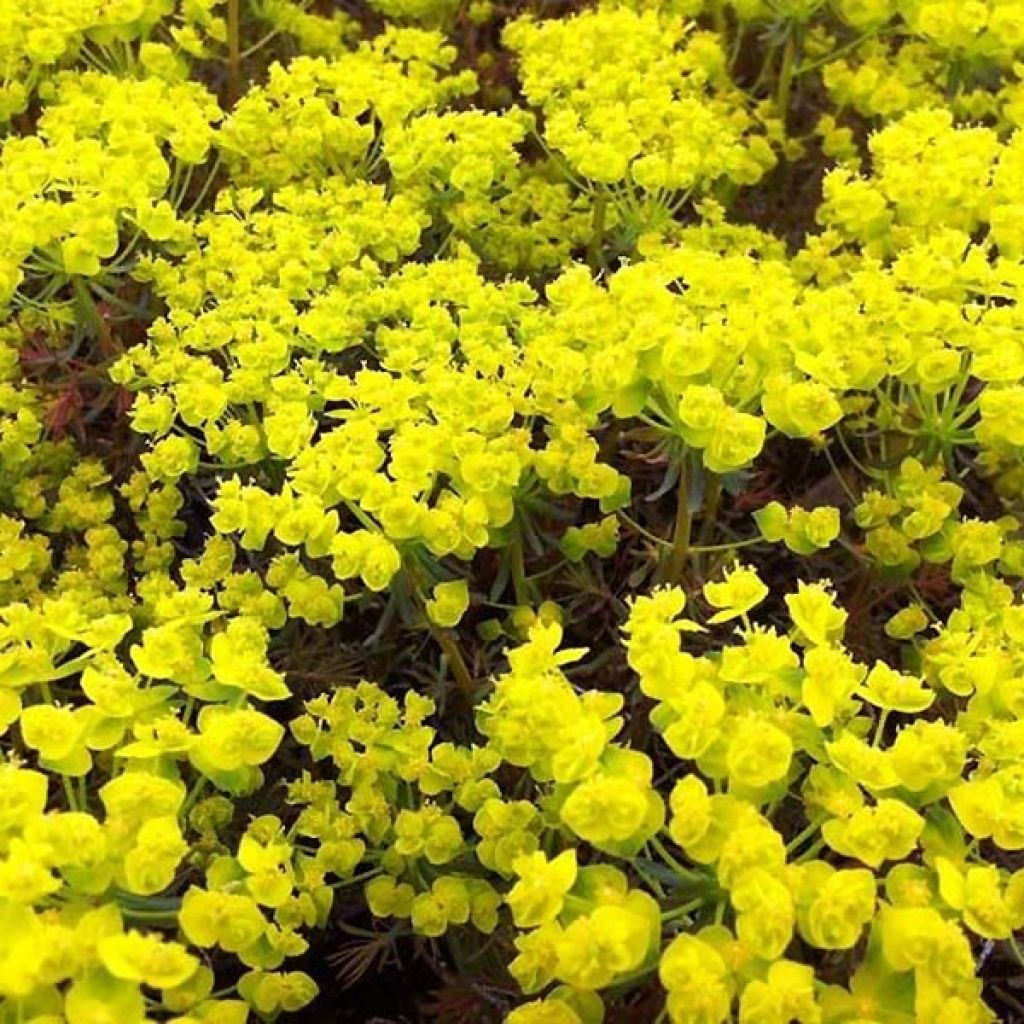

Euphorbia cyparissias Clarice Howard - Spurge
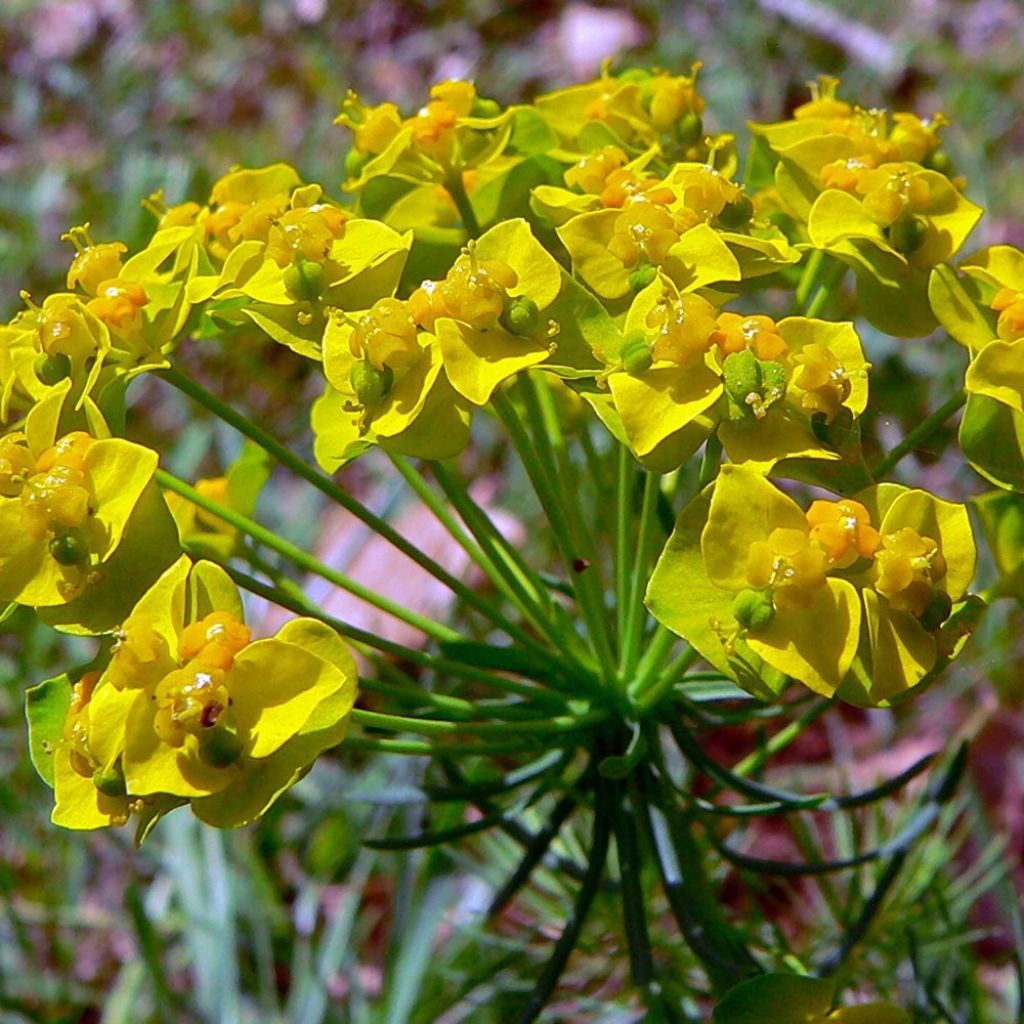

Euphorbia cyparissias Clarice Howard - Spurge
Euphorbia cyparissias Clarice Howard - Spurge
Euphorbia cyparissias Clarice Howard
Cypress Spurge
Seems to be growing well.
Nath44, 27/05/2025
Special offer!
Receive a €20 voucher for any order over €90 (excluding delivery costs, credit notes, and plastic-free options)!
1- Add your favorite plants to your cart.
2- Once you have reached €90, confirm your order (you can even choose the delivery date!).
3- As soon as your order is shipped, you will receive an email containing your voucher code, valid for 3 months (90 days).
Your voucher is unique and can only be used once, for any order with a minimum value of €20, excluding delivery costs.
Can be combined with other current offers, non-divisible and non-refundable.
Home or relay delivery (depending on size and destination)
Schedule delivery date,
and select date in basket
This plant carries a 12 months recovery warranty
More information
We guarantee the quality of our plants for a full growing cycle, and will replace at our expense any plant that fails to recover under normal climatic and planting conditions.
Would this plant suit my garden?
Set up your Plantfit profile →
Description
The Euphorbia cyparissias 'Clarice Howard' is a particularly decorative variety of Cypress Spurge in spring, with its young shoots and feathery young leaves in a brown-purple color that form a beautiful backdrop for its bouquets of acidic yellow-green flowers. This perennial plant of dry terrains quickly forms a vigorous ground cover, producing a mass of very fine foliage in a blue-green colour in summer. Deciduous and very hardy, this prolific plant requires space, wild and exuberant companions, a very sunny exposure, and well-drained soil.
The 'Clarice Howard' Cypress Spurge belongs to the vast family of Euphorbiaceae. It is a horticultural form of Euphorbia cyparissias, native to southern, central, and western Europe, where it grows on cultivated land, along roadsides, and in fallow fields, in open terrain. This perennial plant that develops from a creeping stump emits numerous stolons that allow it to colonize the soil. It reaches a height of 30 cm (12in), 40 cm (16in) when flowering, and spreads over a minimum diameter of 80 cm (32in). The plant produces numerous herbaceous stems, colored Bordeaux at their tips, with fine brush-like young foliage in a similarly dark colour. The foliage colour evolves from purple in spring to blue-green in summer, and back to brown-purple in autumn. The floral stems appear between April and June, covered with narrowly linear brown leaves (1 to 3 mm (0in) in diameter and 1 to 4 cm (0 to 2in) in length), slightly curved. They bear umbels of petal-less flowers formed by yellow-chartreuse bracts that turn orange over time. The stems and leaves contain a milky juice that is sticky and toxic. The above-ground vegetation of this euphorbia is deciduous, drying up and disappearing in winter to re-emerge in spring.
The 'Clarice Howard' Cypress Spurge will find its place in a dry and sunny rockery, on a wild slope where it won't suffocate its neighbours. Indeed, it can be an invasive plant. It can be associated with other formidable ground covers such as Achillea crithmifolia, Stachys byzantina 'Big Ears', Georgia Blue speedwell, and Artemisia canescens. It will create beautiful patches of colour at the feet of shrubs and plants with dark foliage, such as 'Black Lace' elderberry, Berberis thunbergii Atropurpurea, purple sage, and tall sedums like 'Black Jack' or 'Chocolate'. Its aniseed flowering blends well with the blue of creeping rosemary and perennial flax.
Report an error about the product description
Euphorbia cyparissias Clarice Howard - Spurge in pictures
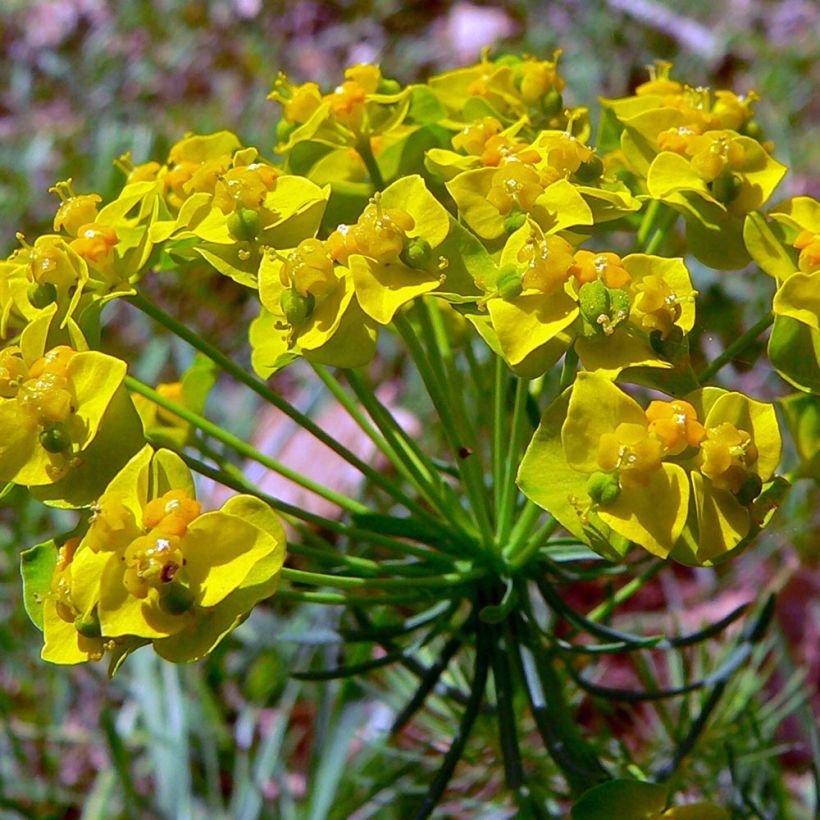

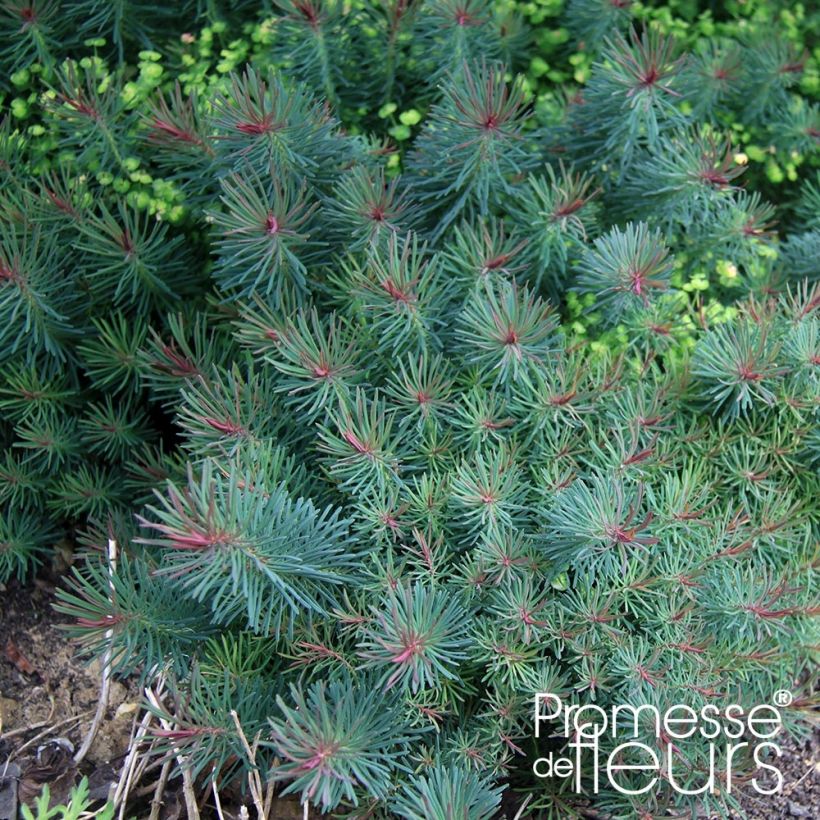

Flowering
Foliage
Plant habit
Safety measures
Botanical data
Euphorbia
cyparissias
Clarice Howard
Euphorbiaceae
Cypress Spurge
Cultivar or hybrid
atteintescutaneomuqueuses
Cette plante peut provoquer l'apparition de réactions cutanées indésirables, une atteinte des yeux, ou des difficultés respiratoires si elle est ingérée.
Ne la plantez pas là où de jeunes enfants peuvent évoluer. Evitez tout contact avec la peau: privilégiez l'emploi de gants pour la manipuler. En cas de contact, lavez-vous soigneusement les mains et rincez abondamment à l'eau la zone concernée. Lavez les vêtements entrés en contact. En cas de réaction cutanée, contactez votre médecin ou le centre antipoison le plus proche de chez vous. En cas d'atteinte étendue ou de difficultés respiratoires, appelez immédiatement le 15 ou le 112.Pensez à conserver l'étiquette de la plante, à la photographier ou à noter son nom, afin de faciliter le travail des professionnels de santé.
Davantage d'informations sur https://plantes-risque.info
Other Euphorbia - Spurge
View all →Planting and care
Plant Euphorbia cyparissias in light, dry to moist, but most importantly, well-drained soil. A limestone, neutral, or slightly acidic soil is suitable for this plant, which grows spontaneously in gardens in Mediterranean regions, arid in summer. Excess moisture in winter can greatly reduce the hardiness of this plant. A soil rich in gravel and stones yields good results. This Euphorbia requires a very sunny exposure in the North but tolerates partial shade in regions further South. It is advisable to prune the floral stems to ground level as they wither, waiting for the inflorescences to completely fade, to prevent too much latex from flowing. It is essential to protect your hands from the latex as it causes skin inflammation. Pruning is necessary to prevent the plant from becoming unsightly or if you wish to avoid seed formation.
Planting period
Intended location
Care
-
, onOrder confirmed
Reply from on Promesse de fleurs
Similar products
Haven't found what you were looking for?
Hardiness is the lowest winter temperature a plant can endure without suffering serious damage or even dying. However, hardiness is affected by location (a sheltered area, such as a patio), protection (winter cover) and soil type (hardiness is improved by well-drained soil).

Photo Sharing Terms & Conditions
In order to encourage gardeners to interact and share their experiences, Promesse de fleurs offers various media enabling content to be uploaded onto its Site - in particular via the ‘Photo sharing’ module.
The User agrees to refrain from:
- Posting any content that is illegal, prejudicial, insulting, racist, inciteful to hatred, revisionist, contrary to public decency, that infringes on privacy or on the privacy rights of third parties, in particular the publicity rights of persons and goods, intellectual property rights, or the right to privacy.
- Submitting content on behalf of a third party;
- Impersonate the identity of a third party and/or publish any personal information about a third party;
In general, the User undertakes to refrain from any unethical behaviour.
All Content (in particular text, comments, files, images, photos, videos, creative works, etc.), which may be subject to property or intellectual property rights, image or other private rights, shall remain the property of the User, subject to the limited rights granted by the terms of the licence granted by Promesse de fleurs as stated below. Users are at liberty to publish or not to publish such Content on the Site, notably via the ‘Photo Sharing’ facility, and accept that this Content shall be made public and freely accessible, notably on the Internet.
Users further acknowledge, undertake to have ,and guarantee that they hold all necessary rights and permissions to publish such material on the Site, in particular with regard to the legislation in force pertaining to any privacy, property, intellectual property, image, or contractual rights, or rights of any other nature. By publishing such Content on the Site, Users acknowledge accepting full liability as publishers of the Content within the meaning of the law, and grant Promesse de fleurs, free of charge, an inclusive, worldwide licence for the said Content for the entire duration of its publication, including all reproduction, representation, up/downloading, displaying, performing, transmission, and storage rights.
Users also grant permission for their name to be linked to the Content and accept that this link may not always be made available.
By engaging in posting material, Users consent to their Content becoming automatically accessible on the Internet, in particular on other sites and/or blogs and/or web pages of the Promesse de fleurs site, including in particular social pages and the Promesse de fleurs catalogue.
Users may secure the removal of entrusted content free of charge by issuing a simple request via our contact form.
The flowering period indicated on our website applies to countries and regions located in USDA zone 8 (France, the United Kingdom, Ireland, the Netherlands, etc.)
It will vary according to where you live:
- In zones 9 to 10 (Italy, Spain, Greece, etc.), flowering will occur about 2 to 4 weeks earlier.
- In zones 6 to 7 (Germany, Poland, Slovenia, and lower mountainous regions), flowering will be delayed by 2 to 3 weeks.
- In zone 5 (Central Europe, Scandinavia), blooming will be delayed by 3 to 5 weeks.
In temperate climates, pruning of spring-flowering shrubs (forsythia, spireas, etc.) should be done just after flowering.
Pruning of summer-flowering shrubs (Indian Lilac, Perovskia, etc.) can be done in winter or spring.
In cold regions as well as with frost-sensitive plants, avoid pruning too early when severe frosts may still occur.
The planting period indicated on our website applies to countries and regions located in USDA zone 8 (France, United Kingdom, Ireland, Netherlands).
It will vary according to where you live:
- In Mediterranean zones (Marseille, Madrid, Milan, etc.), autumn and winter are the best planting periods.
- In continental zones (Strasbourg, Munich, Vienna, etc.), delay planting by 2 to 3 weeks in spring and bring it forward by 2 to 4 weeks in autumn.
- In mountainous regions (the Alps, Pyrenees, Carpathians, etc.), it is best to plant in late spring (May-June) or late summer (August-September).
The harvesting period indicated on our website applies to countries and regions in USDA zone 8 (France, England, Ireland, the Netherlands).
In colder areas (Scandinavia, Poland, Austria...) fruit and vegetable harvests are likely to be delayed by 3-4 weeks.
In warmer areas (Italy, Spain, Greece, etc.), harvesting will probably take place earlier, depending on weather conditions.
The sowing periods indicated on our website apply to countries and regions within USDA Zone 8 (France, UK, Ireland, Netherlands).
In colder areas (Scandinavia, Poland, Austria...), delay any outdoor sowing by 3-4 weeks, or sow under glass.
In warmer climes (Italy, Spain, Greece, etc.), bring outdoor sowing forward by a few weeks.






























